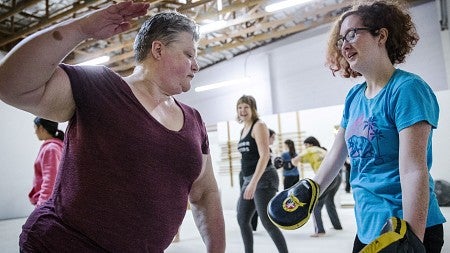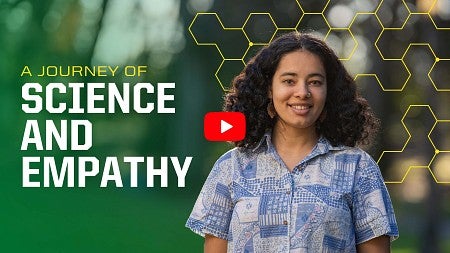
UO Scientists and Big Ten Peers Make Powerful Partners
The university’s move to the conference heralds more opportunities for researchers to collaborate
By Sherri Buri McDonald • Photo illustration by David Gill • July 3, 2024
6 min read
The University of Oregon may be one of the newest members of the Big Ten conference, but UO scientists have long partnered on research with peers at Big Ten schools. As shown in the following profiles, UO-Big Ten teams are making discoveries to help babies breathe, kids learn, and smokers kick the habit.
Seeking out clues for better breathing
University of Oregon and University of Wisconsin-Madison
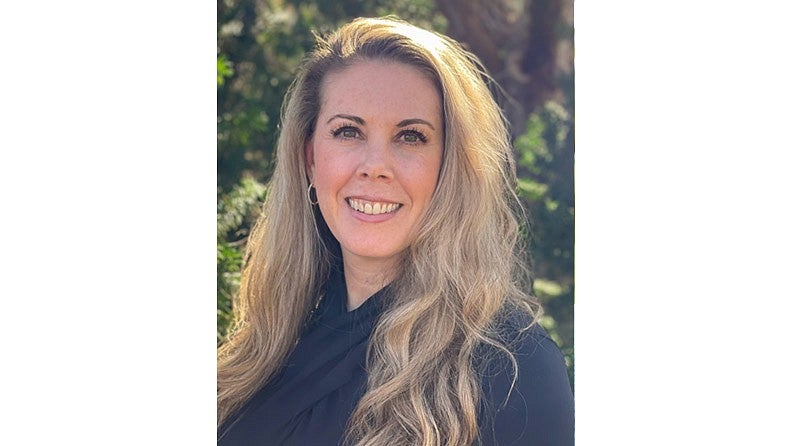
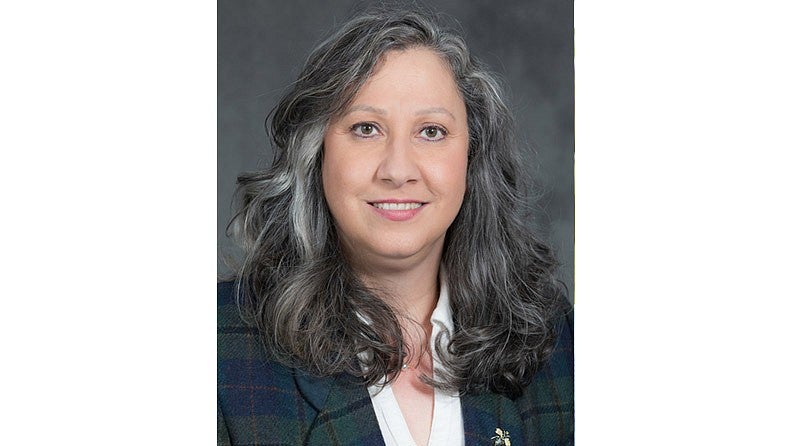
Adrianne Huxtable Associate Professor, human physiology, neuroscience, College of Arts and Sciences, University of Oregon
Jyoti Watters Professor, comparative biosciences, School of Veterinary Medicine, University of Wisconsin-Madison
Project Neonatal Inflammation Impairs Control of Breathing, funded by the National Institutes of Health
The researchers found that illness or injury early in life can harm neural circuits that control breathing, potentially affecting this critical function throughout life. The pair want to further investigate the role of microglia, immune cells in the brain. Their work supports better identification and treatment of breathing control issues in infants, which in turn could help prevent common breathing disorders in adults, such as sleep apnea.
Be Like Jyoti Huxtable was a postdoctoral fellow at the University of Wisconsin-Madison when she started publishing with Watters in 2010. She credits Watters for helping her start her own lab and figure out the nuances of being a new faculty member.
“In all aspects of life, I aspire to be Jyoti,” Huxtable says. “If it was up to me, I would always have a collaborator because I think the science is stronger when you pool expertise.”
Adds Watters: “It takes a multidisciplinary approach to make significant advancements in our knowledge.”
Discovering the building blocks of math skills
University of Oregon and Purdue University
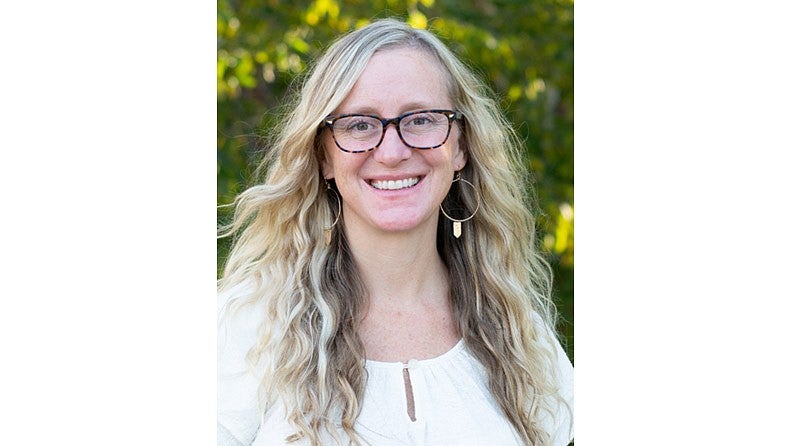
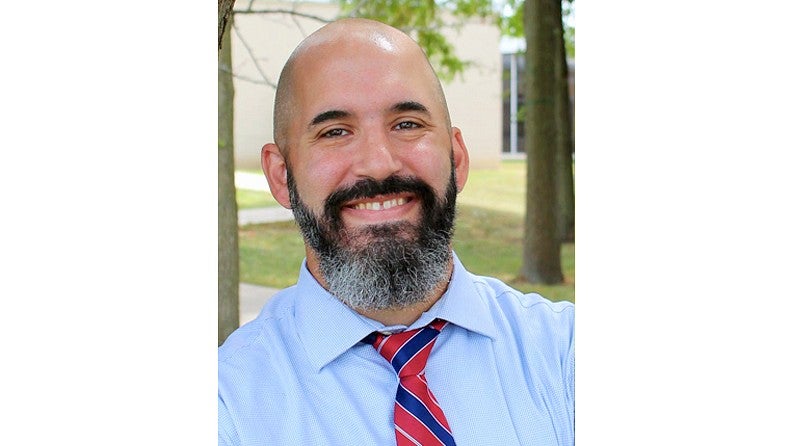
Sara Schmitt Associate Professor, Bricker-Squires Faculty Chair in Early Intervention, College of Education, University of Oregon
David Purpura Professor, human development and family science, College of Health and Human Sciences, Purdue University
Project Examining Potential Causal Connections and Mechanisms between Children’s Block Play and Mathematics Learning, funded by the National Science Foundation
Schmitt studies how children engage self-control and manage emotions. Purpura’s expertise is early-math skills. Together, they’re studying how playing with blocks in preschool can build skills for school readiness and long-term academic achievement. Kids benefit when teachers set aside time to play with blocks, the two report, gaining skills for early geometry and behavioral self-regulation.
Football Fans The pair met eleven years ago when Schmitt was a new hire at Purdue, and they’ve been collaborating ever since. Work aside, they share a love of pro football.
“I’m a die-hard Patriots fan,” Purpura says.
“Green Bay Packers for me,” Schmitt responds.
With college ball, Schmitt has mixed allegiances. She’s a Badgers fan from her undergraduate days at the University of Wisconsin-Madison. With her Purdue connection, she cheers for the Boilermakers, and now she’s a Ducks fan, too.
“I know who I’m cheering for as long as they’re not playing each other,” she says, laughing.
Tracking children’s development over decades
University of Oregon and Penn State University
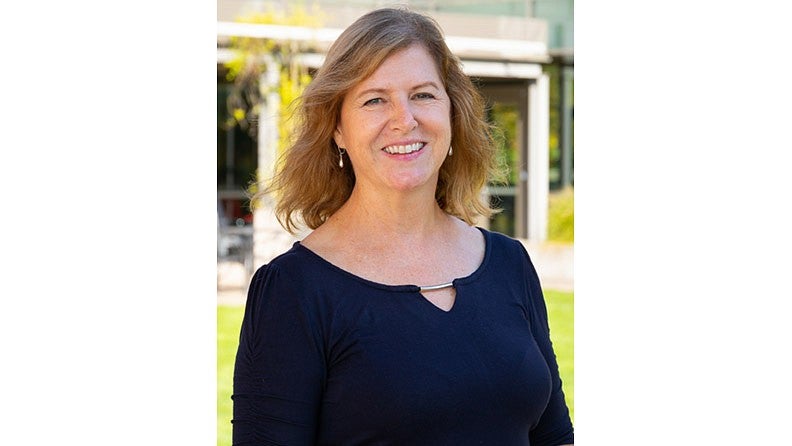
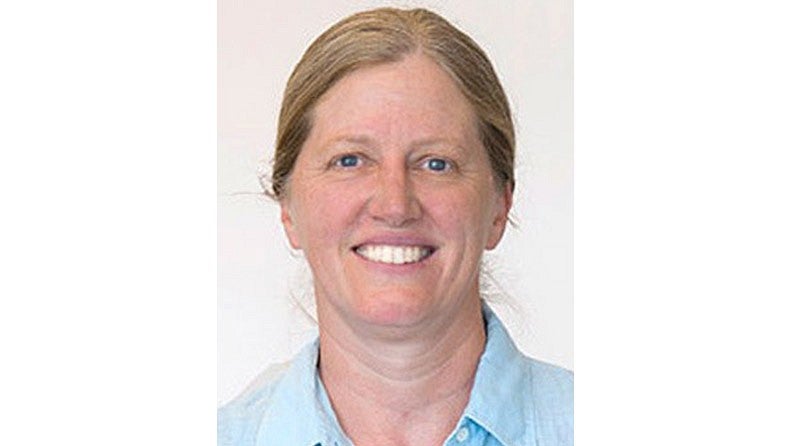
Leslie Leve Professor and Lorry Lokey Chair in Education, College of Education, University of Oregon
Jenae Neiderhiser Distinguished Professor of Psychology, College of the Liberal Arts, Penn State University
Project Early Growth and Development Study, part of the Environmental Influences on Child Health Outcomes Program funded by the National Institutes of Health
For more than twenty years, the pair have followed youth raised in adoptive or biological homes from early childhood to late adolescence. Their research involves interviewing about a thousand children each year. Roughly half of the children were adopted at birth by families to whom they’re not genetically related. That enables Leve and Neiderhiser to study which behaviors are influenced by genetics or the prenatal environment and which are influenced by parenting styles and the rearing environment.
Better Together The researchers’ mentors introduced them in 1994 and they have been going strong ever since. “We divide and conquer when there are scientific needs aligned with our respective strengths,” Leve says.
Adds Neiderhiser: “The longevity of our collaboration has nurtured strong relationships and trust among our teams, enabling us to be very efficient with our limited funding and to accomplish much more together than we could alone.”
Creating AI technology to improve STEM studies
University of Oregon and University of Illinois Urbana-Champaign
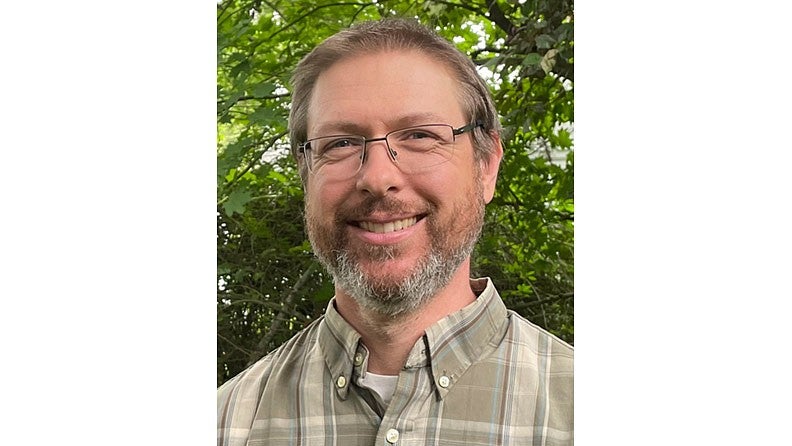
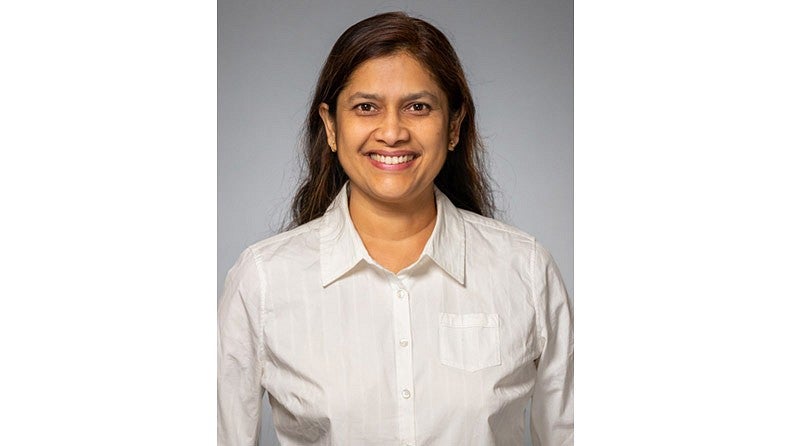
Daniel Lowd Associate Professor, computer science, College of Arts and Sciences, University of Oregon
Suma Bhat Assistant Professor, electrical and computer engineering, The Grainger College of Engineering, University of Illinois Urbana-Champaign
Project The Inclusive and Intelligent Technologies for Education Institute, funded by the National Science Foundation and the Institute for Education Sciences
The institute is creating AI technology to help children learn about science, technology, engineering, and math. Lowd and Bhat co-lead about fifteen scientists and graduate students studying foundational AI research.
Changing Education The new AI technology will supplement teacher instruction by supporting student collaboration, persistence, and resilience—attributes that are key to student success, Lowd says.
Imagine lab partners who can’t agree on next steps to solve a science problem. The AI technology—a cartoon avatar moderator—would intervene: “How about we try doing it this way?”
The institute plans to unveil pilot technology in classrooms this fall.
“This is not research in a vacuum,” says Bhat, an expert in how machines process the language that people use. “We’re excited that it’s going to be in collaboration with teachers and students.”
Finding new ways to help smokers quit
University of Oregon and The Ohio State University
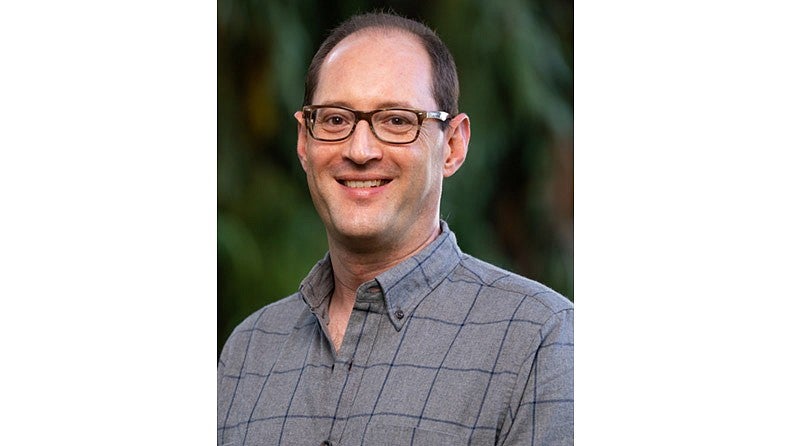
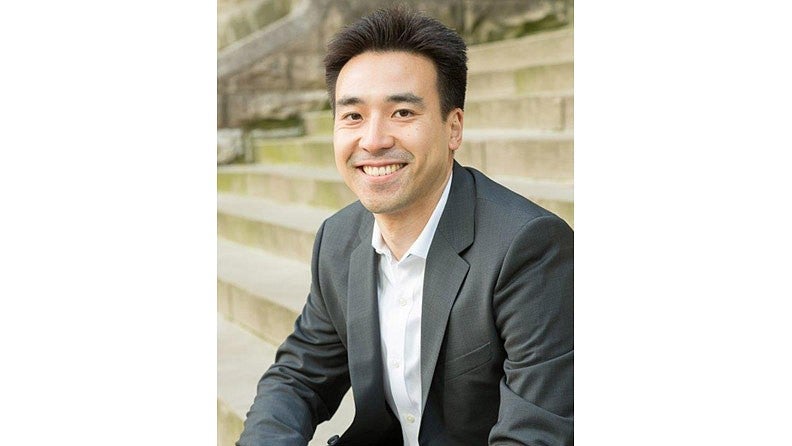
Elliot Berkman Professor, neuroscience, College of Arts and Sciences, University of Oregon
Kentaro Fujita Professor, psychology, College of Arts and Sciences, The Ohio State University
Project Construal Level as a Novel Pathway for Affect Regulation and Cancer Control, funded by National Institutes of Health
Using insights from psychology and neuroscience, the researchers are testing more effective ways to help smokers quit. Instead of other approaches that elicit smokers’ negative emotions to reduce their cravings, the researchers send a daily inspirational text to activate their motivation to quit. A sample text reads, “My family would probably thank me five to ten years from now for quitting,” compared with the control message, “Cigarettes contain harmful chemicals.”
Enjoying the intellectual pursuit The researchers knew of each other before they actually met.
“I’ve known about Ken’s work and admired it for a long time,” Berkman says.
Even as a doctoral student at the University of California, Los Angeles, Berkman was being recognized for his research.
“I had lots of friends in the field who thought very highly of him,” Fujita says. “He was known as ‘the boy genius.’”
They met at a conference in 2017 and realized they shared an interest in studying self-control, but from different angles: Berkman from neuroscience and Fujita from psychology. Both enjoy thinking deeply about the problems they’re trying to solve. Their enthusiasm for collaboration also extends to the graduate students on their teams.
“I say that in light of the fact that I suspect Ohio State and UO will be No. 1 and No. 2 in football, so we’ll be rivals before you know it,” Fujita jokes.
Sherri Buri McDonald is a news and research writer with University Communications.
Image of Brutus from Wikipedia Creative Commons by Brett T. Burch



